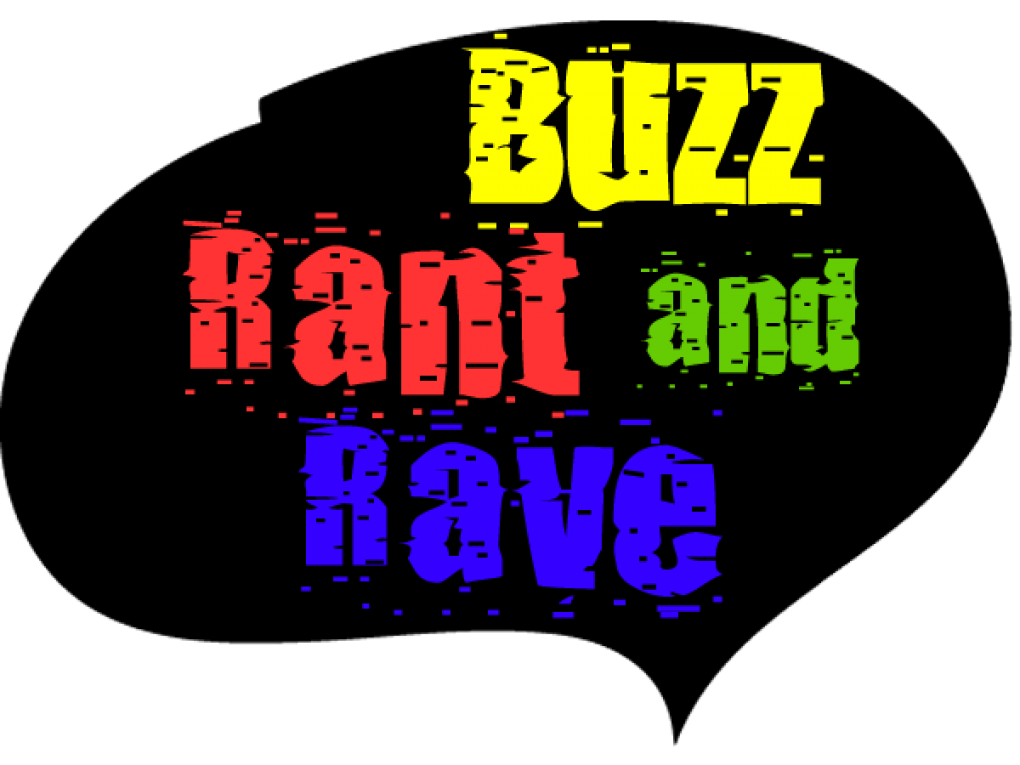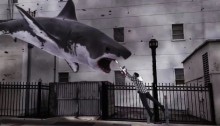So, the Primetime Emmys are tonight. Which means that the big question for the home audience is: how to you watch both the Emmys and the penultimate episode of Breaking Bad? My plan: watch the Emmys live until the first commercial break after 9:25 to allow Breaking Bad sufficient time to buffer for commercials, then watch Breaking Bad, and then, reduced to a pile of mush, have a drink and then either watch the rest of the Emmys on DVR or, with mind blown, look up the results later.
And so, here briefly, are some of my picks. These are not predictions of who will win (which I leave to the experts at Kremlinology Acadameyology, but who I would vote for if I had a hammer ballot.
The Acadamey’s complete list of nominees.
Lead Actress in a Drama. Claire Danes, Homeland. However ridiculous the plot of the tail end of the second season became, Danes still gives one of the strongest, craziest performances on screen. Elisabeth Moss is a solid choice, too, for a season where she got to play Peggy as confident and independent, making some bad late night choices, and then having a major relationship forced on her again. Did I just talk myself into making a better case for Moss? Perhaps.
Lead Actor in a Drama. Jon Hamm, Mad Men. In six years of nominations, Jon Hamm has never won an Emmy for playing Don Draper, and that doesn’t seem right. This year, he got to play a Don Draper falling apart in various ways. Perhaps Hamm’s increased visibility as a comic actor in contemporary films shows that he is giving a very carefully crafted performance as Draper, and he’s not just a stoic handsome man. Of course, Bryan Cranston is giving one of television’s great all-time performance as Walter White, and he had a terrific submission episode in “Say My Name.”
Supporting Actress in a Drama. Anna Gunn, Breaking Bad. In Breaking Bad’s season 5, Gunn delivered a great performance through subtle reactions as well as major breakdowns. Emilia Clarke also had some huge moments in the third season of Game of Thrones, but Breaking Bad is a far more focused show than Game of Thrones, and Gunn has the opportunity to do more nuance.
Supporting Actor in a Drama. Jonathan Banks, Breaking Bad. Given all of the options, I might go with Nikolai Coster-Waldau for Game of Thrones, where he had the opportunity to develop Jaime Lannister into a sympathetic character. But the world-weary, competent, tough, and devoted Mike Ehrmentraut came to life as a character. Aaron Paul, Mandy Patinkin, and Peter Dinklage are all fine choices, too.
Writing for a Drama Series George Mastras, Breaking Bad. Dead Freight, The Rains of Castamere, Q&A, and Say My Name were all tremendous episodes. But I think the most surprising and shocking twist to happen in any of these was in Dead Freight. And leading up to that, it was just a great heist caper, and who doesn’t love a caper?
Directing for a Drama Series Michelle MacLaren, Breaking Bad. Three words: Crystal Blue Persuasion.
Drama Series Game of Thrones. If the entire fifth season of Breaking Bad was Emmy-eligible this year, I would no doubt pic it. But Game of Thrones this season pulled together to not only just put some of the most compelling moments from A Song of Ice and Fire on screen, but do it in a way that made the sprawling story coherent and engaging. Aside from Dead Freight, did any other show on television have bigger episode outs than season 3 of Game of Thrones? The episode that ended with the Hold Steady singing “The Bear and the Maiden Fair” over the credits was nothing compared to the episode that ended with silence. The penultimate episode of the season went even farther with that big event than the book’s craziness. Sure, I still think that Breaking Bad is the overall best show on television, but season 3 of Game of Thrones is not only huge with story and character, but executed nearly flawlessly.
Lead Actress in a Comedy. Amy Poehler, Parks and Recreation. Sure, I think that season two of Enlightened was one of the best shows on television in this past year, and that Laura Dern made the show work. But Poehler has been consistently great on Parks and Rec and the stuff with Leslie and Ben was perfect.
Lead Actor in a Comedy. Louis C.K., Louie. I just wrote and deleted Alec Baldwin’s name. Jack Donaghy is one of the most compelling comedic characters in television history, and in this last season he had great things to do. But thinking about what Louis C.K. does throughout the third season of Louie, particularly int he Late Show arc, who is better at reacting on camera? Because he’s effectively playing himself, C.K. might not be as recognized for doing so much interesting work in front of the camera, but what he’s doing is powerful and effective. if subtle.
Supporting Actress in a Comedy Anna Chlumsky, Veep. Not much to say about this, because I’ve given up on Modern Family and Glee and never seen Nurse Jackie. So between, Jane Krakowski and Chlumsky, I’d go with Chlumsky.
Supporting Actor in a Comedy Adam Driver, Girls. I could give this to Bill Hader for Stefon playing Donald Duck having night terrors, but Adam Driver brings so much nuance and depth to the fictional Adam. Fictional Adam is creepy, but rarely unrelatable. Few other actors may not have been able to find the humanity in the character.
Directing in a Comedy. Louis C.K., Louie. I find it difficult to decide between the two “auteurs” here, but would give a slight edge to Louis over Lena.
Writing in a Comedy “Last Lunch”, 30 Rock. I find it difficult to have particularly strong feelings about picking a winner in this category, because although two 30 Rock scripts were nominated, I think that the preceding episode, “A Goon’s Deed in a Weary World” had a better script. I don’t think that this was the best episode of Louis, and no script from Parks and Rec, Veep or Enlightened was among the year’s best?
Comedy Series 30 Rock. I know that Girls and Louie are artier and have a wider range of emotion, but nothing on television was consistently funnier than 30 Rock in its final season. And what’s the point of a best comedy if not to be funny?
Reality Competition Program The Amazing Race. It’s not that TAR has gotten out of the rut it;s been in for a while, it’s that all the other series are falling into similar ruts (hello Top Chef) or just unwatchably boring (The Voice). Finally being shot in HD, TAR at least looks great, even if the structure of the race itself has become stale.
Writing for a Variety Series The Daily Show. (See below)
Variety Series. The Colbert Report. Which is better written and which is the best variety series? It’s a toss-up. Having John Oliver sit in for Jon Stewart might highlight the strength of the writing of TDS, while Colbert should at some point beat the mothership for best series. Both shows are putting together great material four nights a week, many weeks of the year.



